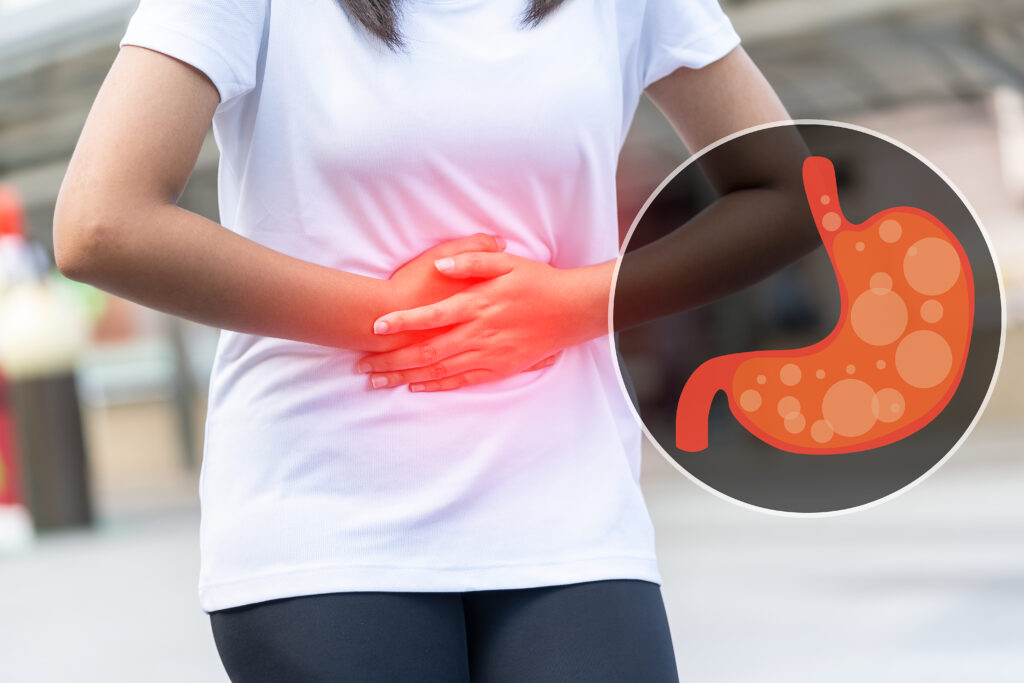Gastroesophageal reflux disease (GERD) affects millions of Americans, causing discomfort and impacting daily life. At Mason City Clinic in North Iowa, we understand the challenges GERD presents and offer advanced treatment options, including GERD surgery, to provide relief and improve quality of life. In this comprehensive guide, we’ll address the most frequently asked questions about GERD and GERD surgery.
GERD is a chronic condition where stomach acid flows back into the esophagus, leading to symptoms such as heartburn, regurgitation, chest pain, difficulty swallowing, and chronic cough. It occurs when the lower esophageal sphincter (LES) relaxes or weakens, allowing stomach acid to enter the esophagus.
In this video Dr Fabian discusses how GERD is diagnosed and treated.
Several factors can contribute to GERD, including obesity, hiatal hernia, smoking, certain medications, and dietary habits. Certain foods, such as fatty or spicy foods, caffeine, alcohol, and citrus fruits, can trigger symptoms in some individuals.
GERD is diagnosed based on symptoms, medical history, and diagnostic tests. Tests may include upper endoscopy, esophageal pH monitoring, esophageal manometry, and barium swallow. These tests help determine the severity of GERD and guide treatment decisions.
Treatment for GERD typically begins with lifestyle modifications and medications to reduce acid production or strengthen the LES. Lifestyle changes may include weight loss, dietary modifications, elevating the head of the bed, and avoiding trigger foods. Medications such as proton pump inhibitors (PPIs), H2 receptor antagonists, and antacids can help relieve symptoms.

GERD surgery, also known as fundoplication, may be considered for patients who have severe symptoms, do not respond to lifestyle changes or medications, or for those who wish to avoid long-term medication use. Surgery may also be recommended for patients with complications of GERD, such as Barrett’s esophagus or esophageal strictures.
GERD surgery involves reinforcing the LES to prevent acid reflux. The most common type of GERD surgery is laparoscopic Nissen fundoplication, where the upper part of the stomach (fundus) is wrapped around the esophagus to create a new valve. This helps prevent stomach acid from refluxing into the esophagus. While the fundoplication is extremely effective and generally well tolerated by most patients, in some cases, an expandable reflux management implant is used to allow food and drink to pass through the LES more easily
GERD surgery can provide long-term relief from symptoms and reduce the need for medications. It can also improve quality of life by eliminating the need to avoid trigger foods and reducing the risk of complications associated with GERD.
Duane Obanion, a farmer in the area had GERD surgery at the Mason City Clinic in 2019. Read about his experience here: https://mcclinic.com/testimonials/i-feel-great-the-surgery-was-easy-now-i-can-fully-enjoy-my-life-with-my-wife-we-garden-bike-and-visit-with-our-three-grown-children-and-three-grand-daughters/
Recovery from GERD surgery typically involves a short hospital stay and a gradual return to normal activities. Patients may experience temporary difficulty swallowing or discomfort, which improves over time. Most patients can resume regular activities within a few weeks after surgery.
Like any surgical procedure, GERD surgery carries risks, including infection, bleeding, damage to surrounding organs, and complications related to anesthesia. However, these risks are low, and complications are rare in experienced hands.
Drs Matthew Fabian and Gregory Grimberg are the region experts in GERD surgery. No primary care referral is necessary. If you or a loved one suffer from GERD and wish to learn more about your treatment options please call 641.428.2400 to schedule a consultation with one of these exceptional surgeons.
Up-to-date. Down-to-earth. Close to home. Lots of great reasons to make Mason City Clinic
your first choice for all your family’s specialty healthcare needs.
250 S. Crescent Drive, Mason City, IA 50401
Tel: 641.494.5200
Toll Free: 800-622-1411
Fax: 641.494.5403